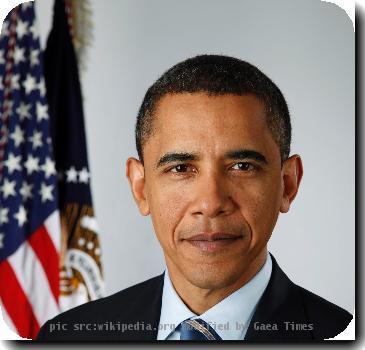US officials say Iran could make 1 nuclear bomb in year, but would need longer to make it work
By By Anne Gearan, APWednesday, April 14, 2010
US officials: Usable Iran bomb not imminent
WASHINGTON — Iran could build a nuclear bomb in a year’s time if it wants to, but would need more time to make the weapon usable against an enemy, U.S. officials told Congress on Wednesday.
A U.S. military attack on Iran is still an option to try to stop or slow progress to a bomb, Undersecretary of Defense Michele Flournoy said, but not an attractive one.
President Barack Obama has said he won’t “take any options off the table with respect to Iran,” Flournoy said. “Now, that means to me that military options remain on the table.”
The administration has not concluded that a nuclear Iran is inevitable, Flournoy said, and considers the nation’s potential to develop and use such weapons a primary national security threat.
Having said that Iran could amass sufficient highly enriched uranium to build one bomb in roughly a year, Gen. James Cartwright, the vice chairman of the Joint Chiefs of Staff, said that a nation driving for a weapon generally needs three to five additional years to make the leap to a bomb it can field.
The timeline Cartwright cited Wednesday could be shortened if Iran pursued ways to deliver a weapon at the same time as it worked to build a bomb.
Iran is also pursuing an aggressive ballistic missile program, and with outside help could produce an intercontinental missile capable of reaching the United States, a top intelligence official told the Senate Armed Services Committee.
That is not the same thing as saying that Iran is closing in on the means to launch a nuclear attack on the United States, but the comments were among the Obama administration’s most precise public assessments of Iran’s military abilities and intentions.
“While it is unlikely to initiate a conflict intentionally or launch a pre-emptive attack, Iran uses its military forces to defend against both external and internal threats,” the director of the Defense Intelligence Agency, Lt. Gen. Ronald Burgess, told the committee.
Iran can temporarily restrict access to the strategic Strait of Hormuz and “threaten U.S. forces in the region and our regional allies with missiles,” Burgess said.
Iran assesses the benefits gained from its use of terrorist surrogates outweigh the costs. Tehran has gone to great lengths to protect its nuclear infrastructure from physical destruction. Iran presents a wide array of threats and challenges to the United States and its allies.
The officials would not publicly address whether the U.S. has changed its 4-year-old assessment that Iran isn’t actively seeking a bomb. The U.S. government is preparing a new classified assessment of Iranian nuclear ability and intent.
The document is likely to conclude that Iran is at least three years from having a fully usable bomb, including the time it takes to test a weapon and attach it to a missile or other means to deliver it to an enemy shore. U.S. officials, speaking on condition of anonymity because the findings are classified, said Iran’s recent testing and other development operations suggest a more active pursuit of weapons technology, but the officials cautioned that the intelligence assessment may not conclude that Iran is now on a full drive for the bomb.
The United States is leading what Flournoy’s State Department counterpart said Wednesday is an urgent drive to apply new international economic sanctions on Iran that could help deter it from choosing the weapons path. The idea is that if an economically strapped Iran concludes that it stands to lose friends, trading partners and international standing by going nuclear, it might choose not to do so.
Testifying beside Flournoy at a sometimes tense Senate committee session, State Department Undersecretary William Burns predicted a resolution will merge from the United Nations Security Council within weeks, and that one-time holdout China will go along. The U.S. wants much more biting penalties than some fellow veto-holding members of the council will support, and Burns would not say how tough he expects the resolution to be.
Iran claims that its accelerated nuclear program is aimed only as producing energy, not weapons.
Iran’s nuclear chief said Wednesday his country has produced 5 kilograms of 20 percent enriched uranium for a medical research reactor, a move in open defiance of the U.N. demands to halt the suspect program. The level of enrichment is well shy of the 80 or 90 percent pure uranium needed to build a nuclear weapon.
Tags: Barack Obama, Congress, Iran, Middle East, North America, United States, Washington







